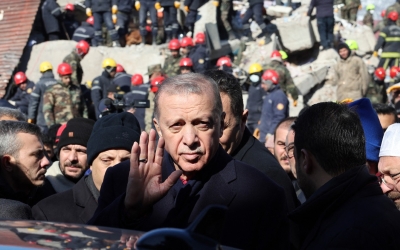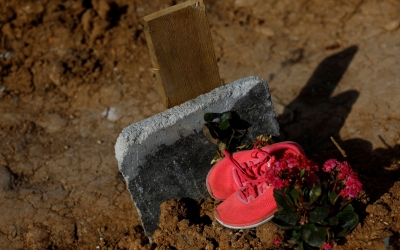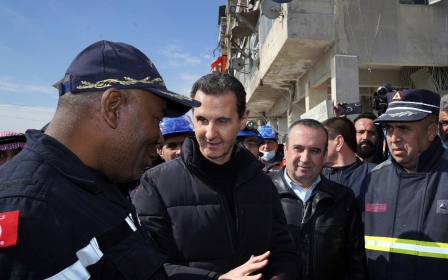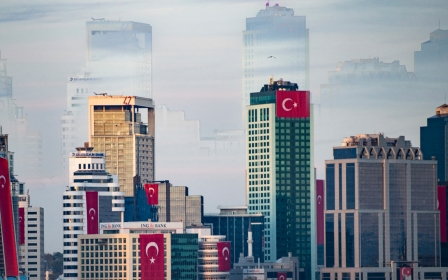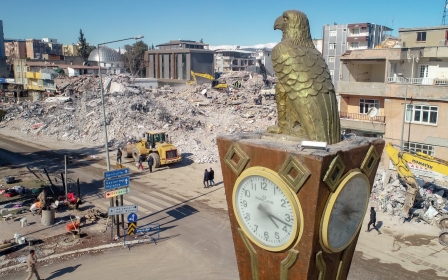EU donor conference raises $7.5bn for Turkey and Syria, as quake costs mount
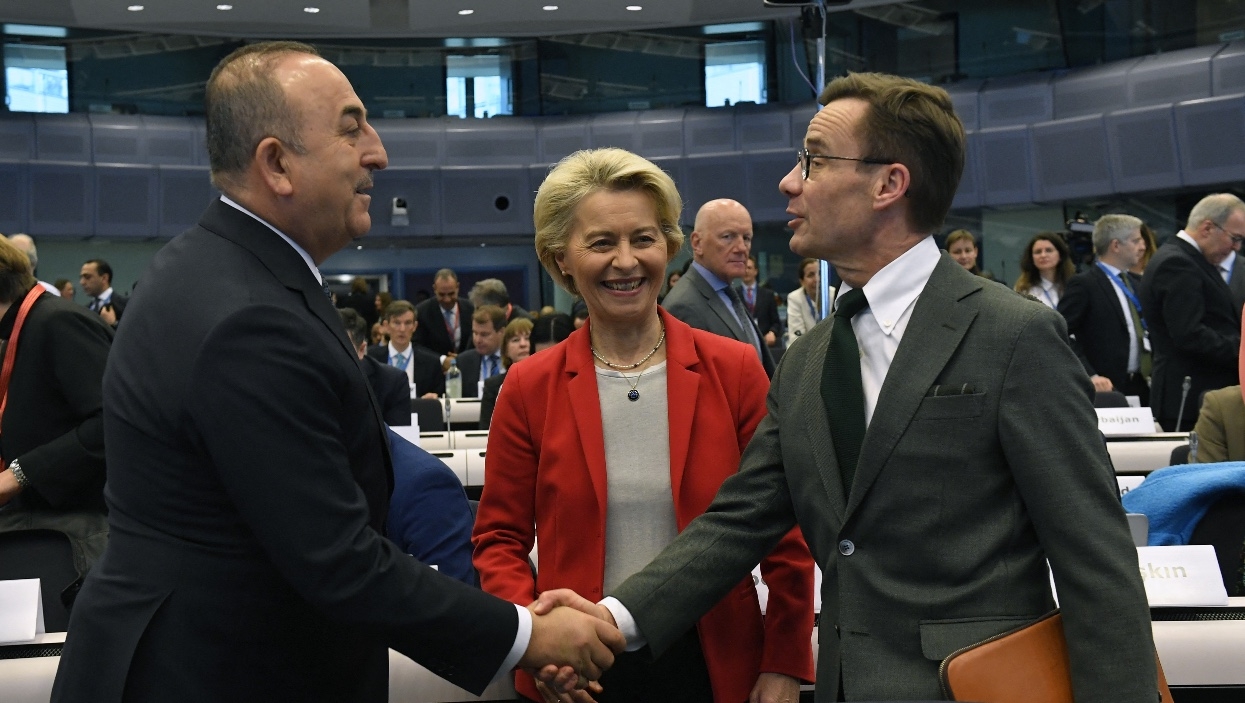
A European Union donor conference for earthquake-ravaged Turkey and Syria raised $7.5bn but drew howls of protest from Damascus, which was excluded from the event.
The European Union launched the conference on Monday to raise funds for Turkey and Syria in the aftermath of the 6 February quakes which left more than 50,000 dead and sparked a humanitarian crisis.
European Commission President Ursula von der Leyen said $3.5 bn would be raised by the 27-nation bloc of EU member states. She started the conference by pledging $1.06bn from the EU’s executive branch for Turkey and an additional $116m Euros for Syria.
“We have shown to the people in Turkey and Syria that we are supporting those in need,” Von der Leyen said.
Sweden's Prime Minister Ulf Kristersson, who co-chaired the conference in Brussels, said the funding demonstrated European solidarity.
"We've heard voices from governments across the world proclaiming the one main message, that the people affected are not alone. We are with you,” he said.
The pledges, however, are a fraction of what economists estimate are the staggering economic costs facing Turkey and Syria.
Quake damage in Turkey is expected to exceed $100bn, or about nine percent of the estimated size of the country’s economy this year, according to a joint estimate from the Turkish government, the United Nations, the World Bank, and the EU.
In Syria, the combined physical damage and economic losses are estimated to be $7.9 billion over three years, according to the World Bank. The Syrian economy, which is already reeling from a decade-long civil war and western sanctions, is expected to shrink 5.5 percent in 2023.
The quakes have also impacted the region’s political landscape.
Turkey elections and Syria normalisation
Turkey’s President Recep Tayyip Erdogan has come under fire for what critics say is his government’s slow response to the disaster and poor enforcement of housing codes.
Erdogan is entering a contentious presidential election on 14 May. A poll published by Aksoy Research in March showed Erdogan lagging behind his opponent Kemal Kilicdaroglu by more than 10 percentage points.
Meanwhile, the international response to the quakes in Syria has been mired by the country’s internal fault lines.
While international rescue teams and aid flowed quickly to Turkey, humanitarian organisations faced major hurdles in reaching stricken areas in northern Syria.
UN investigators say the area became the "epicentre of neglect" as the warring factions and hesitancy by the international community held up desperately needed aid.
Opponents of Damascus have also watched with concern as President Bashar al-Assad seeks to leverage quake aid to make his comeback on the global stage.
The EU and US temporarily eased sanctions to try to speed up aid deliveries to Syria.
Assad has been receiving calls and humanitarian aid from Arab leaders in the aftermath of the quake, in a move analysts say could be the start of improved ties.
He arrived Sunday for his second visit since the quake to the United Arab Emirates, which has already pledged more than $100m in assistance.
Middle East Eye delivers independent and unrivalled coverage and analysis of the Middle East, North Africa and beyond. To learn more about republishing this content and the associated fees, please fill out this form. More about MEE can be found here.


